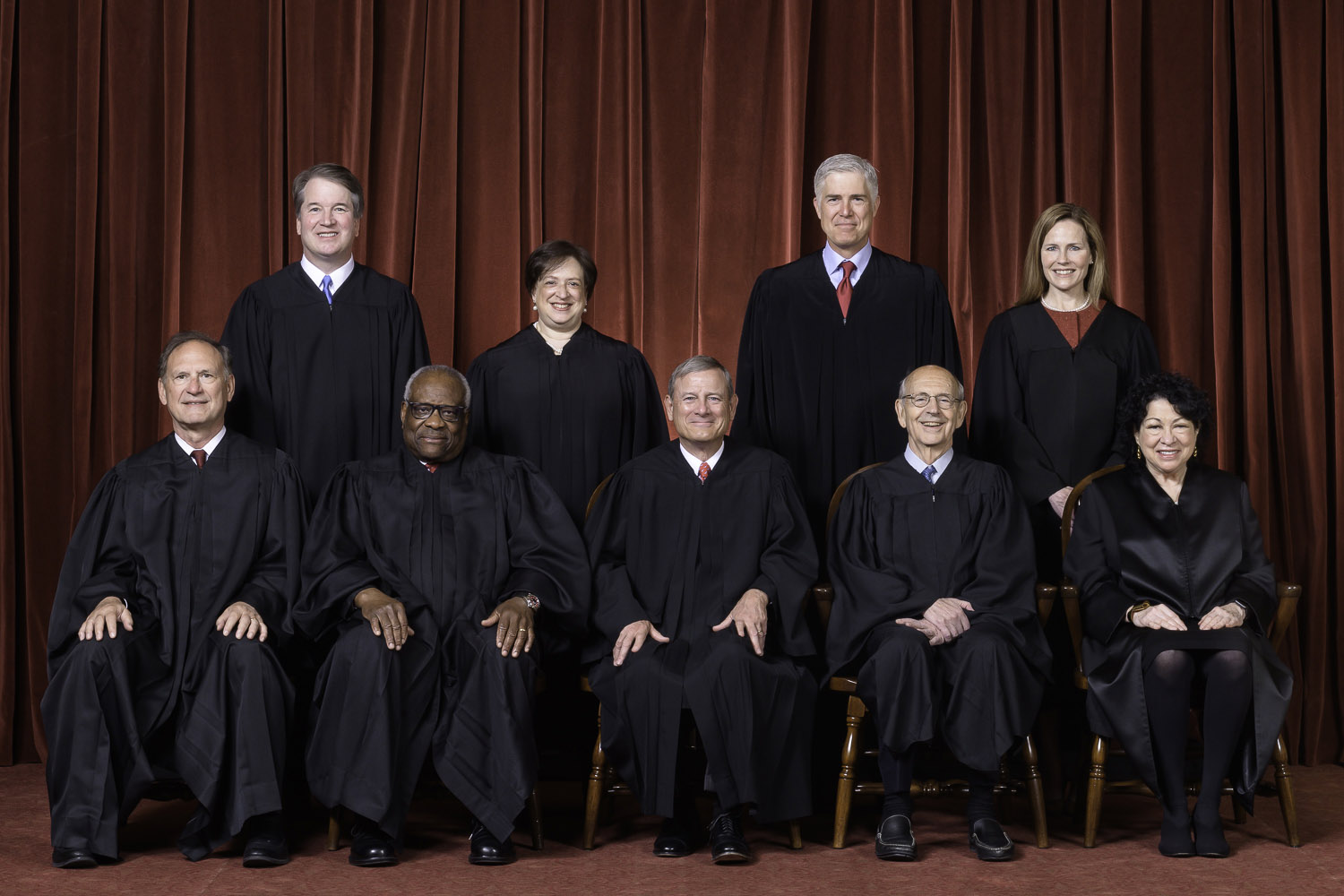
The Freedom From Religion Foundation is disheartened over the do-nothing (just-released) preliminary findings of President Biden’s commission tasked with looking at expansion of the Supreme Court.
The Presidential Commission on the Supreme Court of the United States, consisting of 36 legal scholars, lawyers and former federal judges, was created only to study the problem. But its draft materials have hid behind that tepid mandate and engaged in a craven attempt to please everyone — especially the court being examined. The draft is weak and utterly fails to recognize the critical problem the court presents. The commission’s bias against court expansion seems based in part on what it has said is a lack of public support, plus an exaggerated fear of unchecked growth in Supreme Court seats and the puzzling assumption that it might “reinforce the notion that the justices are partisan actors.”
The high court is already stacked with six partisan actors, including a third appointed by former President Trump using an extremist litmus test. Two of the Supreme Court seats were “stolen” by then-Senate Majority Leader Mitch McConnell, who refused to schedule hearings for Merrick Garland, nominated by President Obama with 11 months left in his term. McConnell effectively reduced the size of the Supreme Court that year by fiat and then hypocritically fast-tracked the appointment of Amy Coney Barrett in the very midst of the ongoing national election last fall, a mere 30 days after she was nominated by Trump in late September.
FFRF has endorsed expansion of the entire federal judiciary — from the U.S. Supreme Court all the way down. Reps. Mondaire Jones, D-N.Y., House Judiciary Chair Jerry Nadler, D-N.Y., and Hank Johnson, D-Ga., co-sponsored a bill calling for the addition of four seats to the Supreme Court. The case for high court expansion includes the fact that the number of justices on the high court was historically tied to the number of circuit courts of appeals — and there are now 13 such circuits. The expansion of lower courts, woefully understaffed, should not even be considered controversial.
“Unfortunately, there is no way to redress these injustices except to expand the court, by at least two seats,” says FFRF Co-President Annie Laurie Gaylor. “Only one example is needed to show just how far-reaching that harm is: If Garland were seated on the court today, as he should be, the Texas abortion ban would have been blocked by the Supreme Court last month.”
“The Supreme Court is captured, already ‘packed’ and partisan,” adds FFRF Director of Strategic Response Andrew L. Seidel, who helped vet and oppose many of Trump’s judicial nominees. “This isn’t the time to study the problem; we need to fix the problem. These conclusions fall woefully short of meeting the moment.”
“The commission itself was composed of people whose professional influence depends on the bounty of federal judges,” comments FFRF Legal Director Rebecca Markert. “We were never optimistic.”
Although the political window might be closing on immediate court reform, the country seems to be waking up to the dire situation presented by an extremist, partisan court. With the high court receiving its worst-ever public approval ratings (down to 40 percent), even the justices have been on a defensive tour. Justice Samuel Alito denied that the court is a “dangerous cabal” at a talk at Notre Dame. Justice Amy Coney Barrett, in echoes of President Nixon, insisted (ironically at an event at the McConnell Center in Louisville) that the court “is not comprised of a bunch of partisan hacks.”
It’s hard not to conclude that they do protest too much.
Although the final commission report will come down in mid-November, it seems foregone that it will be a wasted and missed opportunity to safeguard an independent judiciary — a debacle that will haunt our republic. The Trump Court is unanswerable, and is increasingly wielding its unfettered power in ways that not only undo the separation of church and state, but jeopardize all personal liberties.
Watch out.

